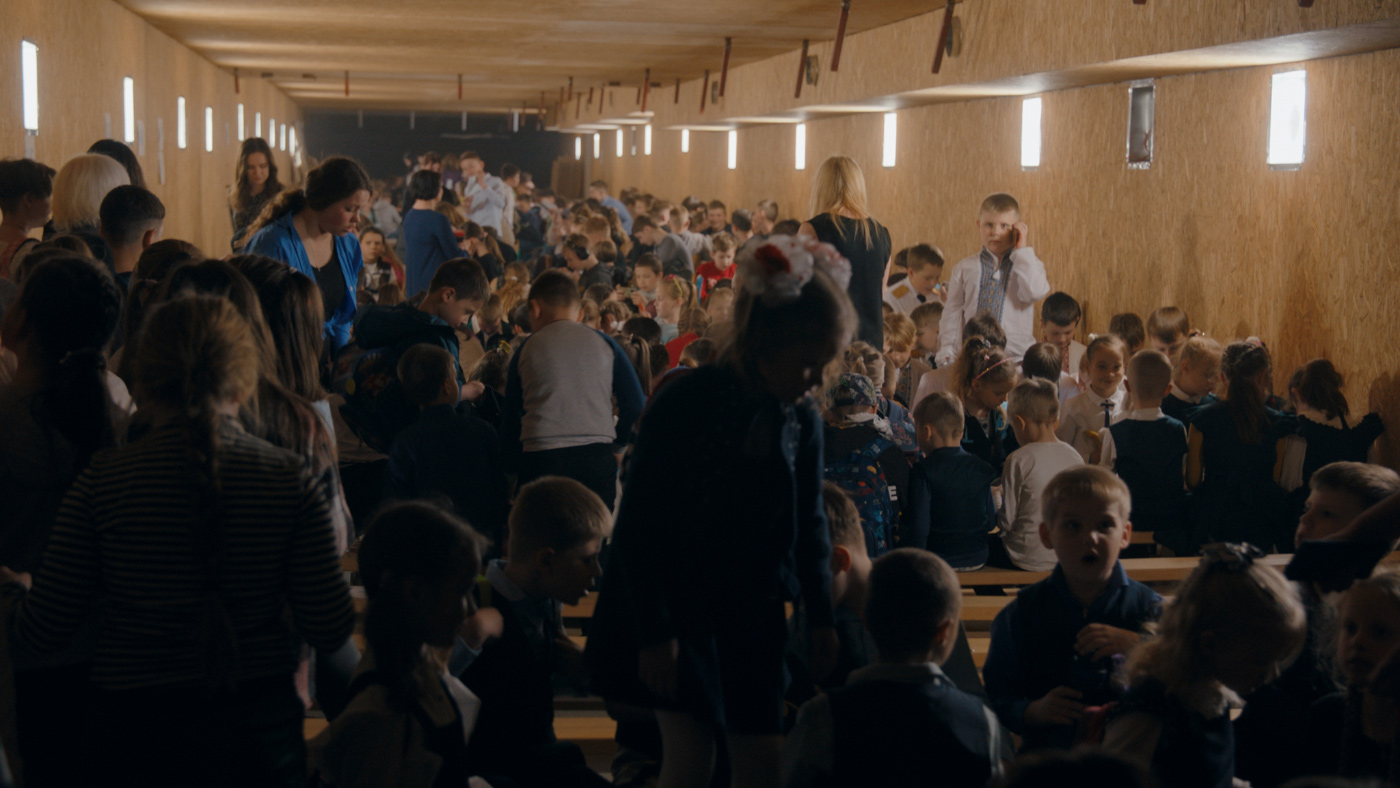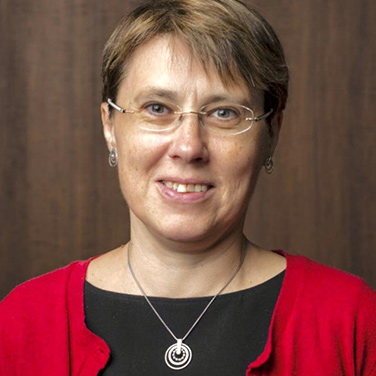In Ukraine, schools have been kept open throughout the war. On the educational front line? The teachers and their brave attempt to salvage some of the normal life children had before the Russian invasion of February 2022 – and in some regions, before the fights that broke out back in 2014.
“Timestamp” is Kateryna Gornostai’s tribute to those women and men’s dedication in the face of logistical odds, psychological strain, and sometimes physical danger. A quiet, immersive film that speaks volumes without the talk.
No narration, talking heads, or re-enactment here. Instead, Gornostai opts for the fly-on-the-wall approach, planting her camera in various classrooms across the country. On-screen titles indicate where and how close we are to the front, as we get to witness the educational routines maintained by teachers and kids alike — as if bound by a tacit pledge to ignore the war out there – sometimes only a few miles away from the safe space of schools.
This is reflected in the cheerful calm of teachers when the air-raid alarms ring and they proceed to orderly evacuation of their noisy young flocks. Most schools have turned their basements into makeshift classrooms, where the kids’ songs about friendship and peace drown out the sound of explosions. In another memorable scene, a teacher has improvised an online classroom from her backyard: proximity to the front is keeping her pupils home.
Shot between March 2023 and June 2024, the doc roughly follows the arc of a school year, culminating in the end-of-an-era rush of graduations. In besieged cities like Bakhmut, they’re held behind the screen of a computer, where we see a happy young achiever cry upon receiving her diploma: hers are the conflicted tears of grief and promise.
But beyond logistical difficulties and lurking death and danger (in one scene, we realise that some of the soldier photos on the school walls are of children’s dads fallen on the front), “Timestamp” also speaks of another challenge: that of teachers grappling with a curriculum turned obsolete. Russian language and history books (often originating from the Soviet era) have lost their relevance in a Ukraine fighting for its independence.
In doing so, the film is also a reflection on the role of school in shaping new national representations: a Ukrainian history freed from the Russian narrative, with its own framing of the national past, symbols, and heroes.

